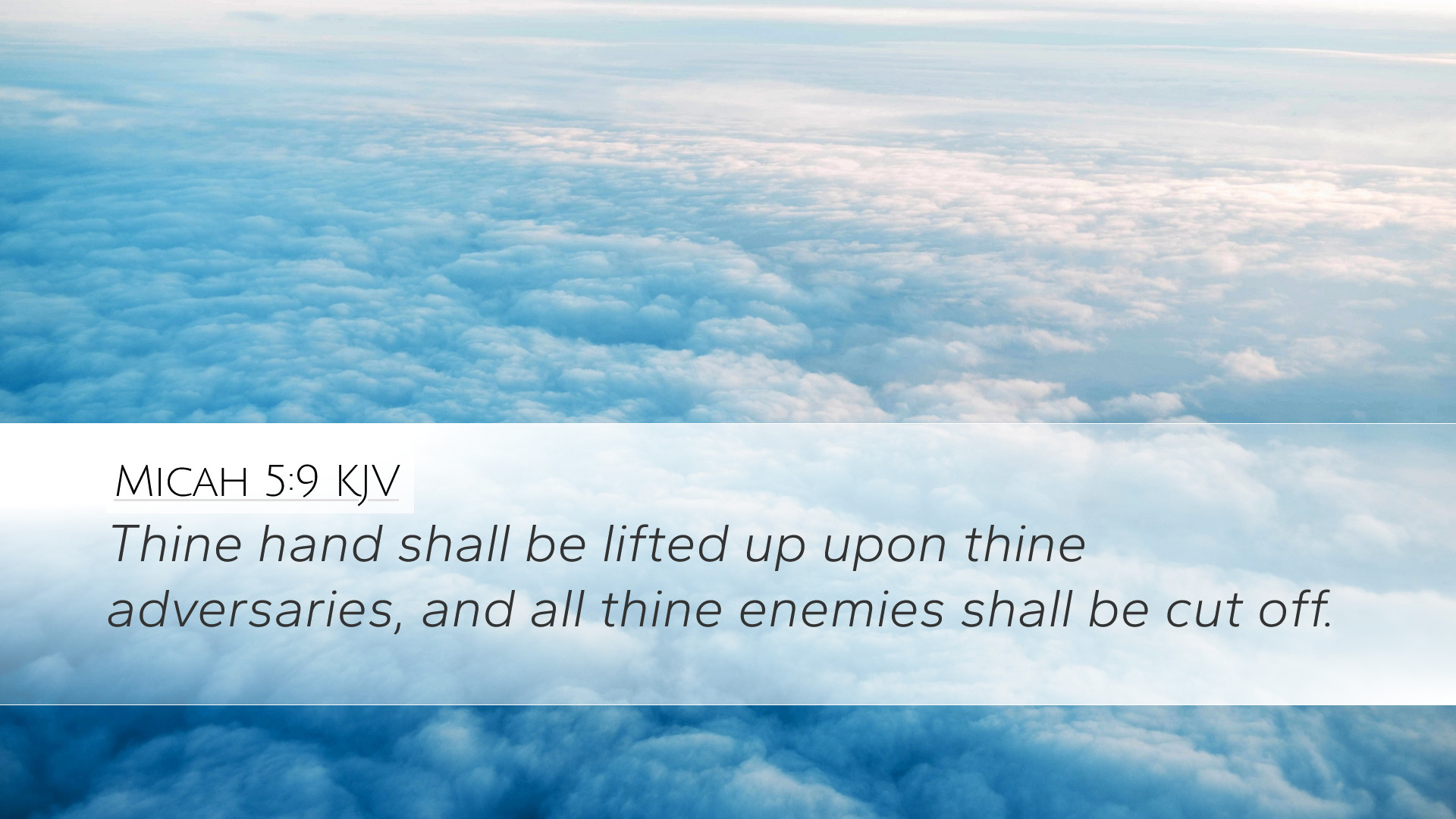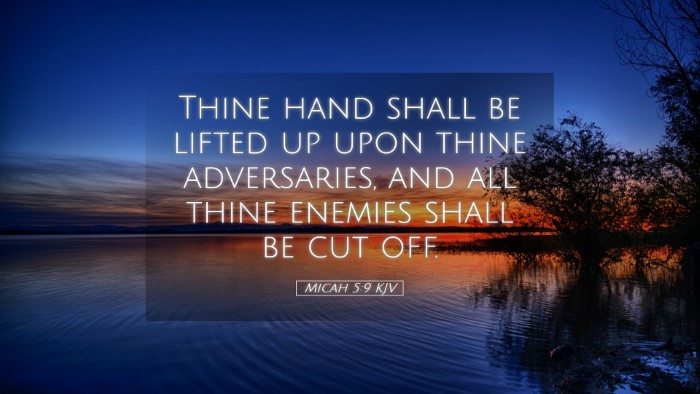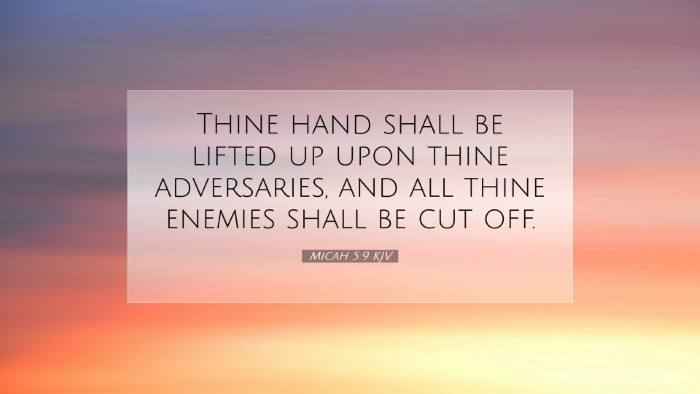Old Testament
Genesis Exodus Leviticus Numbers Deuteronomy Joshua Judges Ruth 1 Samuel 2 Samuel 1 Kings 2 Kings 1 Chronicles 2 Chronicles Ezra Nehemiah Esther Job Psalms Proverbs Ecclesiastes Song of Solomon Isaiah Jeremiah Lamentations Ezekiel Daniel Hosea Joel Amos Obadiah Jonah Micah Nahum Habakkuk Zephaniah Haggai Zechariah MalachiMicah 5:9
Micah 5:9 KJV
Thine hand shall be lifted up upon thine adversaries, and all thine enemies shall be cut off.
Micah 5:9 Bible Commentary
Micah 5:9 - Biblical Commentary
Micah 5:9 states:
"Your hand shall be lifted up against your adversaries, and all your enemies shall be cut off."
Introduction
The Book of Micah presents a prophetic discourse that challenges the nation of Israel, outlining the consequences of their disobedience while simultaneously affirming the hope that exists in the coming of a Deliverer. In Micah 5:9, we see the culmination of a divine promise to Israel, emphasizing the victory that God will secure against their enemies.
Contextual Background
Micah prophesied during a tumultuous time in Israel's history marked by both moral decay and impending judgment. This passage highlights God’s sovereignty and the assurance that His people will ultimately triumph.
Commentary Insights
Matthew Henry's Commentary
Matthew Henry reflects on the significance of divine intervention in the lives of Israel. He emphasizes the strength of the Almighty arm of God that will be raised against the adversaries:
-
Divine Assertion:
Henry notes that the metaphor of God's "hand" symbolizes His power and authority over all nations. It reassures believers that no enemy can stand against God's purpose.
-
Complete Victory:
The phrase "all your enemies shall be cut off" indicates a total and decisive victory, suggesting that God's judgment will be swift and final, affirming His justice.
Albert Barnes' Notes on the Bible
Albert Barnes provides deeper theological reflection regarding the nature of God's protection:
-
God's People as Victors:
Barnes remarks on how this promise serves not only as a warning but as an assurance of triumph for the people of God amidst struggle.
-
Moral Order Restored:
The defeat of enemies represents the restoration of moral order, where evil is vanquished, and righteousness prevails under God’s reign.
Adam Clarke's Commentary
Adam Clarke brings to light the prophetic implications of this verse:
-
Promise of the Coming Ruler:
Clarke connects this verse with the anticipation of the Messiah, who is the ultimate fulfillment of victory and peace for God's people.
-
Theological Significance:
This verse underscores the duality of judgment and hope, where God wields authority to protect His faithful while executing justice on the wicked.
Theological Reflections
The theological implications of Micah 5:9 extend far beyond its immediate context:
-
Affirmation of God’s Sovereignty:
This passage highlights God’s ultimate authority over history, assuring believers that despite current circumstances, God remains in control.
-
Assurance of Victory:
For pastors and theologians, this verse provides a foundation for preaching God's faithfulness. The certainty of victory instills hope among congregations facing adversity.
-
Call to Faithfulness:
In light of this prophecy, there is a call for God’s people to remain faithful and obedient, trusting in the God who delivers and protects.
Practical Application
For pastors and scholars, applying Micah 5:9 involves recognizing the interplay of judgment and grace in contemporary Christian life:
-
Encouragement in Trials:
This verse can be a source of encouragement for believers facing trials, reminding them of God's commitment to their protection and ultimate deliverance.
-
Call to Intercession:
As God's enemies may manifest in various forms today, Micah's message urges the church to engage in prayer and intercession for justice and righteousness.
Conclusion
Micah 5:9 serves as a powerful reminder of God's unchanging nature and His plans for His people. Believers are assured of His hand against adversaries and encouraged to walk in faith, anticipating the victorious King who will reign. In studying this passage, scholars can appreciate the rich tapestry of prophecy, hope, and divine justice woven through it.


